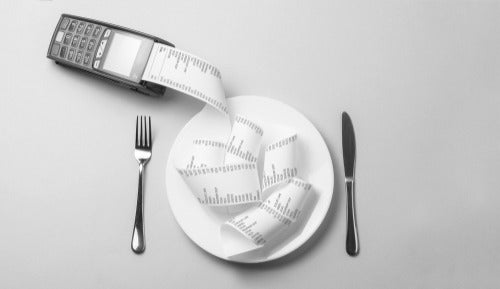
Making the Case for Food as a Potential Bartering Tool and Alternative Currency
In the realm of preparedness, where traditional monetary systems may falter, the concept of alternative currency and bartering takes center stage. While historically precious metals have served this purpose, a novel contender emerges from the prepper's pantry: food, particularly freeze-dried meals. These lightweight, long-lasting sustenance items not only sustain life during emergencies but also hold potential as valuable assets for trade and barter in post-collapse scenarios.
Freeze-dried meals boast an extended shelf life ranging from 15 to 25 years or more, making them a reliable store of value in tumultuous times. Unlike perishable goods that quickly lose their worth, freeze-dried meals retain their nutritional content and palatability over extended periods, making them a stable medium of exchange unaffected by inflation or supply chain disruptions.
In a bartering economy, the versatility of freeze-dried meals is unparalleled. These meals cater to fundamental human needs, providing sustenance in times of scarcity. Whether traded for essential supplies like water, medical supplies, or tools, or exchanged for specialised services such as security, repairs, or transportation, freeze-dried meals offer a tangible and universally valued commodity.
Moreover, the compact nature of freeze-dried meals enhances their portability and accessibility, facilitating trade across diverse geographic regions and communities. Pre-packaged and lightweight, these meals require minimal storage space, allowing individuals to stockpile significant quantities without burdening limited resources. This ease of storage and transport makes freeze-dried meals an attractive asset for bartering, especially in situations where mobility is essential.
The nutritional density of freeze-dried meals further elevates their utility as a form of alternative currency. Packed with essential nutrients, vitamins, and minerals, these meals provide sustained energy and nourishment, critical for maintaining health and resilience during crises. As such, they hold intrinsic value beyond their role as a medium of exchange, offering tangible benefits to those who possess them.
In envisioning food, particularly freeze-dried meals, as alternative currency and bartering commodities, it is crucial to consider their broader socio-economic implications. Unlike fiat currencies, which rely on centralised authorities for issuance and regulation, the adoption of food as currency promotes decentralisation and self-sufficiency within communities. This grassroots approach to economic organisation fosters resilience and autonomy, empowering individuals to meet their needs independently of external systems.
One crucial consideration however lies in finding the equilibrium between using essential sustenance for one’s own needs or as a form of exchange. Freeze-dried meals, being a basic necessity, inherently carry the weight of survival. Additionally, the viability of freeze-dried meals as currency depends greatly on having amassed an ample supply during times of peace and abundance. This ensures not only meeting personal requirements but also having surplus to endure unforeseen durations. Moreover, it provides the reassurance of possessing a valuable commodity that can be readily traded for essential goods and services in times of necessity, such as medical aid or medication.
In conclusion, food, especially freeze-dried meals, represents a compelling solution to the challenges of alternative currency and bartering in preparedness circles. With their extended shelf life, nutritional value, and portability, these meals offer a practical and resilient medium of exchange, capable of sustaining communities in times of crisis. By making the case for food as alternative currency and bartering commodities, one can not only safeguard one’s survival but also cultivate resilient economies founded on principles of self-reliance and mutual support.

Leave a comment